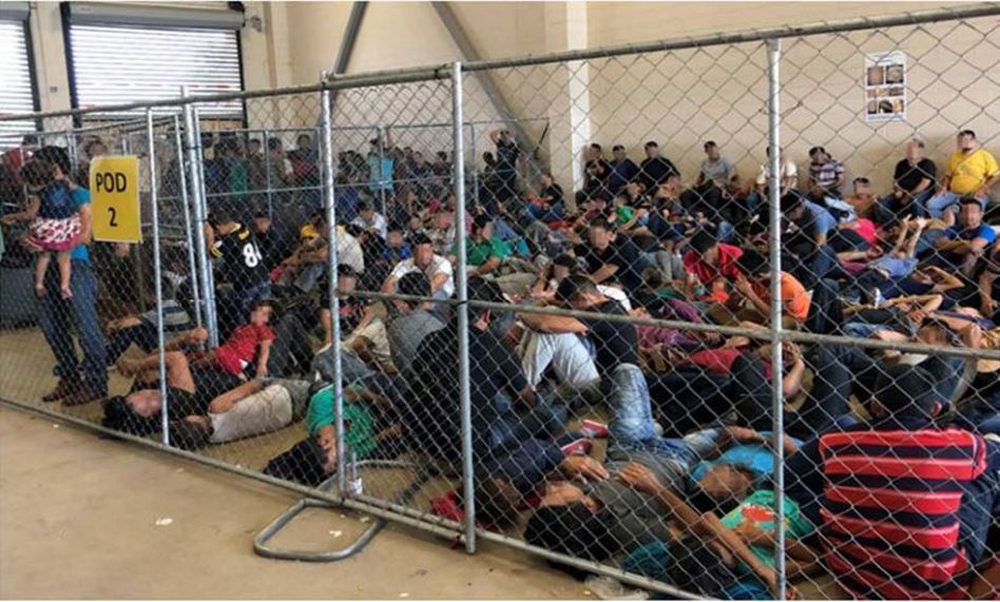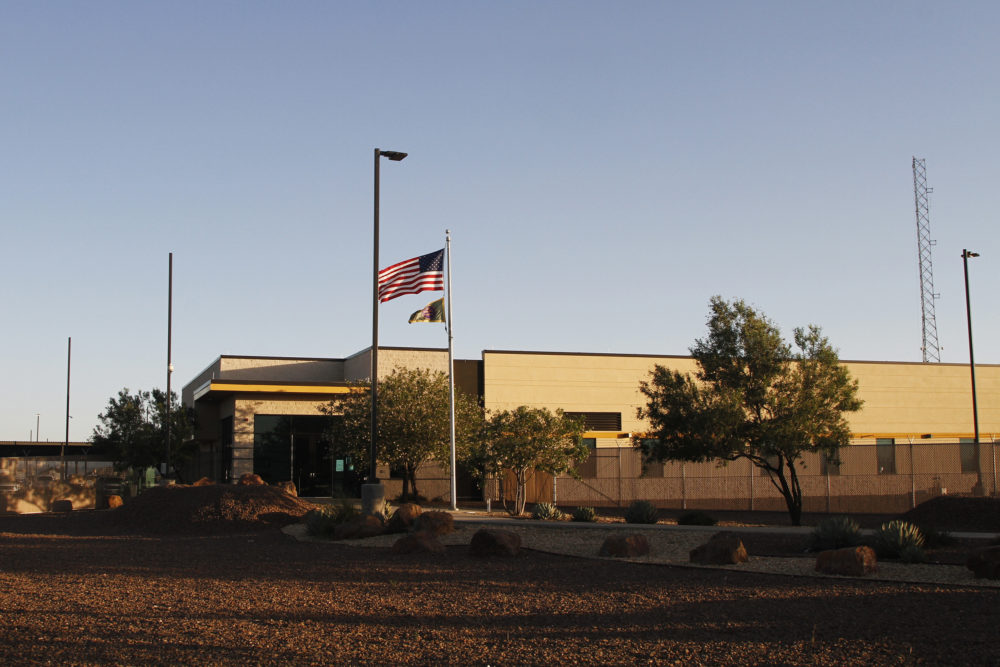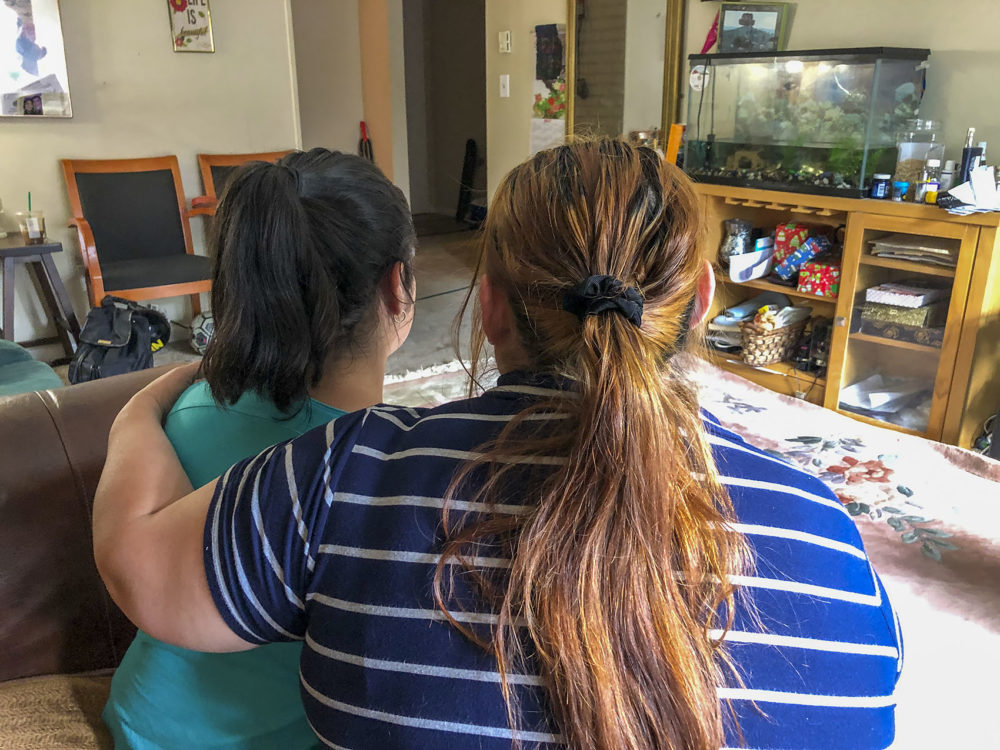Advertisement
Sleeping On Floors, Washing Feet In The Sink: Teen Describes Her Time Detained At The Border
Resume
Images of overcrowded border facilities have prompted public outcry and congressional hearings. The acting secretary of the Department of Homeland Security answered questions Thursday on the immigration crisis along the U.S.-Mexico border.
Massachusetts Congresswoman Ayanna Pressley also recently testified at a federal oversight hearing about her visit to a U.S. Customs and Border Protection (CBP) center in Texas.
"Mr. Chairman, I cannot un-see what I've seen. I cannot un-feel what I experienced. I refuse to," she said.
But the lesser heard voices are those of the children and adolescents, like M, who have actually stayed in these facilities.

M was 16 when she left El Salvador with her older siblings in April. The family says they were being extorted by gang members. M says it was too dangerous to go to school so she dropped out. That's when her mom, H, who's been living in Framingham for almost 10 years, decided she needed to send for her children.
We've agreed to identify M and her mom, H, by their initials because of these threats; They fear for their safety.
M was 7 years old when H saw her last.
"When I left my daughter she was so little, and now I see her, and she's taller than me. She's so different," H says. "I don't know. It's just been really emotional."
H says she has an asylum claim of her own in the U.S. She has work authorization and a steady job cleaning. She sent for her children now because she worried they would die in El Salvador.
But, she says, she couldn't predict how difficult this experience would be for them.
Sleeping On The Floor, Washing Her Feet In The Sink
M's favorite foods are pizza and pupusas — a Salvadoran snack often made with tortillas, cheese and beans. That's what she listed on her intake form when she was processed into a CBP facility in Clint, Texas.
M was separated from her older siblings shortly after crossing the border. She spent a week in June in the now infamous detention center that has come under fire after reports of crowded and inhumane conditions surfaced last month.
"I was there for seven days, and I didn't shower or brush my teeth. For the first four days, I slept on the floor and shared a blanket with another girl. After a few days, some of the girls left and so then we shared a bed," M says.
She remembers a lot of the children were sick. Many had lice. The youngest child in the room was around 5 years old. M says the locked room was crowded, and the only time they could leave was to get a drink of water.
"I was there for seven days, and I didn't shower or brush my teeth. For the first four days, I slept on the floor and shared a blanket with another girl."
M
There was a shared bathroom in the holding room, but it didn't have a door.
"We had to use a blanket to cover ourselves," she says.
For a week of her stay, M says she wore the same underwear and clothing that she was wearing when she crossed the border. After a few days, her feet began to smell, but to wash them, she had to use a bathroom sink.
H looks up at the ceiling, wiping tears away from her eyes while M shares her story. This is the first time H has heard the details of her daughter's detention.
"As a mom, it makes me so sad to hear all of this because I would never want my children to go through this. It's been so difficult knowing what my children have experienced along the way," H says. "I wish I could've been in their place instead of them going through what they've experienced."

Signing Out Of Border Custody
M was transferred in early June to a Florida shelter contracted with the federal government. She says she got there around 3 in the morning — and the first thing she did was take a shower.
In mid-June, M made it to Framingham just a few days before her 17th birthday. She carried with her two manila envelopes stuffed with discharge papers from the government, including a copy of what's known as the Flores settlement. That's the 1997 court decision outlining how the government must care for minors in immigrant detention.
One of the stipulations of that court ruling requires the government to release minors into the custody of health and human services within 72 hours. M was held in CBP custody for a week.
M signed a paper acknowledging she received a copy of the settlement, but she says no one explained what she was signing.
The other items she carried were two slips of paper with her mom's address and cell phone number. She kept them with her until they were reunited.
The family hopes to begin M's asylum application process soon. The two older siblings, 24 and 20 years old, are still being held in ICE detention in Louisiana.
This segment aired on July 18, 2019.
